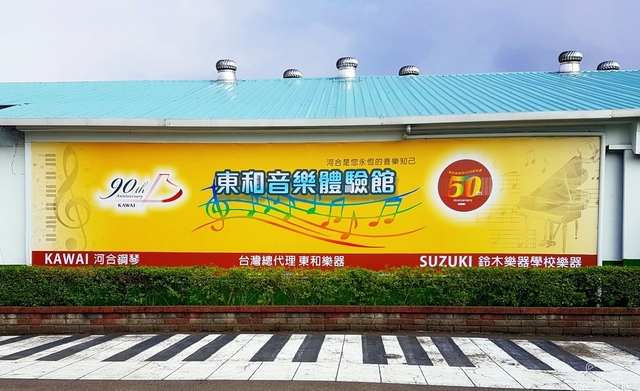Donghe Music Experience Center Introduction
In the 1960s, Donghe initially started by manufacturing wooden casings for televisions, which were then the main source of home entertainment. The cabinets even featured locks, highlighting their preciousness. Later, through a Sino-Japanese multinational collaboration, Donghe began to produce musical instruments and became the agent for Kawai pianos and Suzuki instruments. Starting with their first piano, they then also produced recorders, melodicas, and harmonicas, allowing parents to purchase them at affordable prices and significantly contributing to the popularization of music in the country. In 2007, Donghe established the Donghe Music Experience Center, where children can learn about the structure and sound principles through visits to the piano production line and DIY projects involving recorders, harmonicas, and piano models. Additionally, the experience center features areas for sound experience, environmental experience, antique pianos, and piano dissection, all designed to reveal the details of pianos through both two-dimensional and three-dimensional displays, making it fresh, interesting, and educationally meaningful. Environmental Education starts with listening to the sounds of the environment. Donghe is one of the few tourism factories certified for environmental education, awakening people to the importance of perceiving the sounds of the environment in their daily lives with their ears and hearts. Pleasant sounds deserve appreciation, while noise is transformed into a positive demand for soundscape design, beautifying society. In line with this mission, the content of environmental education includes: "Grandpa Changhe's Time Machine," which explores the relationship and evolution of Donghe and Daxi throughout historical changes; "If You Hear Ancient Sounds," which discusses how traditional calls assisted in commerce; "Piano Talk," explaining how pianos are manufactured; and "I Think and I Sound," teaching how to create instruments or toys from readily available materials. Donghe hopes to attract children to learn about musical instruments through fun and engaging experiences, while also taking adults on a nostalgic journey!





































